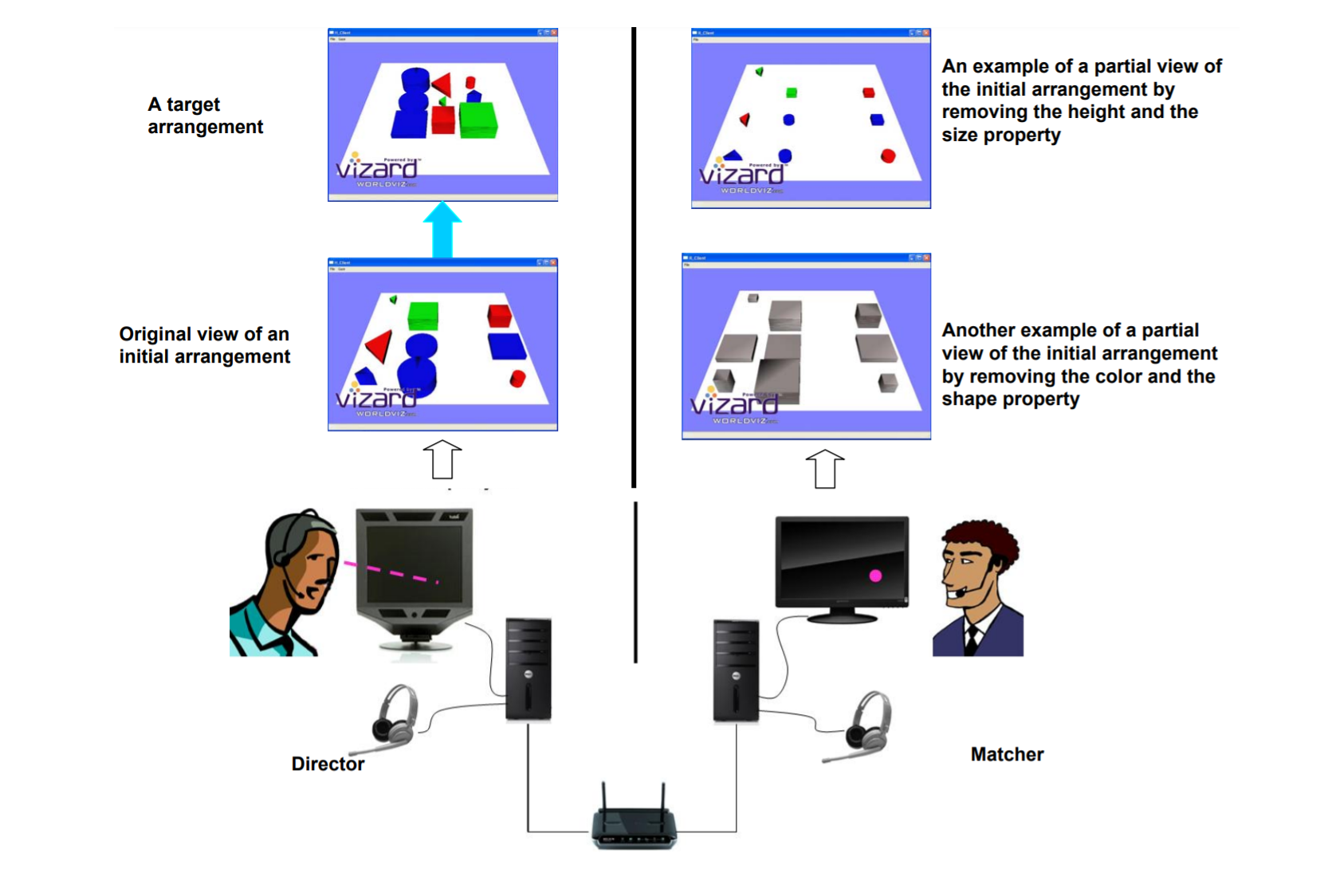Shared Gaze in Collaborative Referring
Motivations and Objectives
In situated dialogue, although artificial agents and their human partners are copresent in a shared environment, their knowledge and representation of the shared world are signicantly different. When a shared basis of the environment is missing, communication between partners become more challenging. Language alone can be difficult and inefficient for partners to ground objects of interest. Motivated by previous empirical findings on eye gaze in joint attention, in collaboration, and in human language processing, our hypothesis is that eye gaze plays an important role in coordinating the collaborative referring process, especially between partners who have mismatched representations of their shared environment. This project is to explore this hypothesis and examine the role of shared gaze in the collaborative referring process.

Related Papers
- C. Liu, R. Fang and J. Y. Chai. Shared Gaze in Situated Referential Grounding: An Empirical Study. Book chapter in Eye Gaze in Intelligent User Interfaces. (eds.) Y. Nakano, C. Conati, and T. Bader. Springer, 2013.
- C. Liu, D. Kay and J. Y. Chai. Awareness of Partner’s Eye Gaze in Situated Referential Grounding: An Empirical Study. 2nd Workshop on Eye Gaze in Intelligent Human Machine Interaction. 2011.